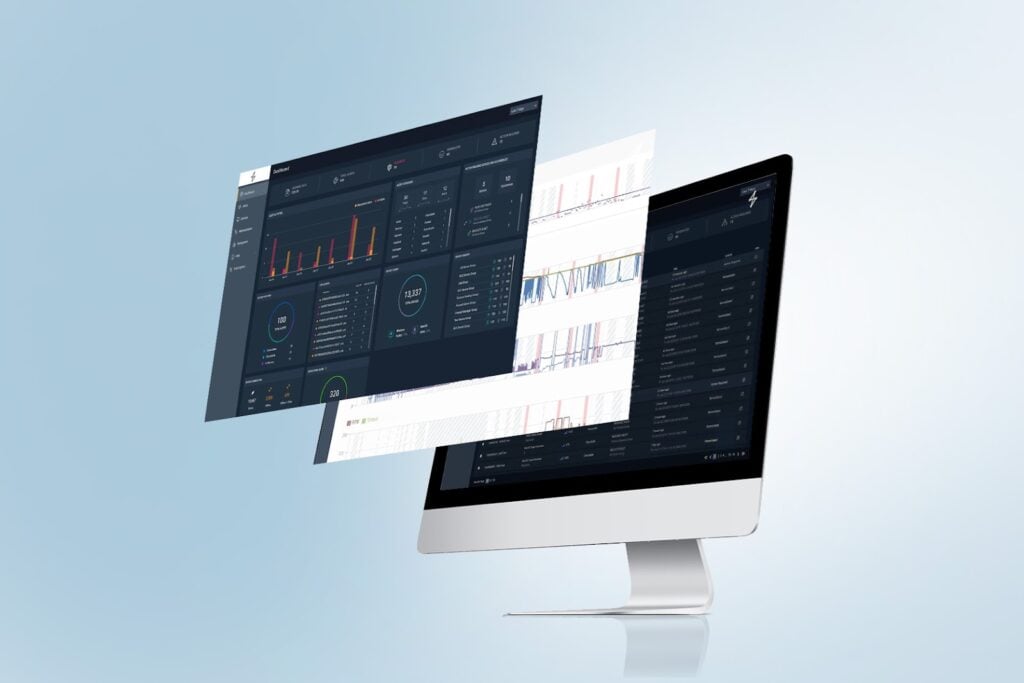Watch our webinar: NERC Compliance: Best Practices in Solar GADS Reporting
In the good news department, renewable electricity capacity is continuing to grow by leaps and bounds around the world. According to the International Energy Agency (IEA), additional capacity grew 50% higher in 2023 from the previous year to an estimated 507 GW. More and more wind and solar power operations are coming online by the month, driven by national and international policies enacted to change the mix of energy resources from primarily fossil fuels to renewable sources. Solar and Wind account for a whopping 96% of forecasted growth over the next five years.
In the United States, as renewable energy generation becomes a bigger part of the American energy portfolio, regulatory bodies have a bigger job to do, too: tracking the causes and frequency of renewable energy outage events. Naturally, the greater the percentage of our grid that is reliant on wind turbines and solar photovoltaic cells working at the highest capacity, the more we need to measure, risk-proof, and optimize them to be as reliable as other energy sources.
NERC Compliance and Solar GADS
To help grid operators better comprehend outage events at solar power projects, NERC—the North American Reliability Corporation, a non-profit regulatory body with the mission to assure and improve the electric grid reliability and security—is now requiring all solar plants of 100 MW or greater capacity to begin submitting quarterly GADS (Generating Availability Data System) reports in 2024.
GADS is a standardized reporting system for power plants, developed by NERC in 1982, and it’s one of the most important tools that analysts, regulatory bodies, and companies use to measure and improve grid reliability and continuity. NERC began requiring large wind projects to submit GADS reports in 2018. Now, large solar projects will be subject to mandatory NERC compliance reporting, too.
However, creating a GADS report for solar asset NERC compliance comes with key challenges. For starters, the reporting requirements are still evolving. It can be difficult to navigate the lack of standardization in event data reporting, with each inverter manufacturer having its own requirements, for example. This makes analysis and reporting more complex than conventional energy sources like wind. Additionally, issues like a tracker or other equipment going offline can complicate the process, especially as requirements continue to expand.
How Industrial AI Suite for Renewables makes NERC compliance significantly easier
Just in time to help Solar operators get started on their Q1 GADS report, SparkCognition’s renewable energy experts Rob Budny (VP of Sales, Renewable Energy) and Dr. Sandeep Gupta (VP of Renewable Energy Technology) have recorded a handy webinar walking through the challenges, solutions, and best practices of NERC compliance.
Here’s Dr. Gupta on how SparkCognition Industrial AI Suite for Renewables puts solar operators in the perfect starting position to manage the flow of data in their operation so that tasks like NERC compliance reporting are readily achieved every quarter:
“So why are we talking about this? What we have seen is that our prospective customers or people who come to us for help with, you know, either GADs or even asset performance management have historically had multiple different systems that are used for achieving different elements, right? Monitoring is done in some way. Analysis might be done another way. Reporting is done another way.
What Industrial AI Suite does, is it essentially brings all of that together in a single platform.
But we already have different sources of data that we bring in into multiple different sources, right? Time series data…again, that we talked about from inverters or turbines and, you know, mid stations and things like that, right? We are bringing the analog data. We are bringing the event data already. We’re bringing maintenance data in many of these cases—that could be logs, plan of day, uh, stuff like that. We are bringing contractual data … market data, right?
Now all of that data comes into a single place. Now you have the ability to monitor, analyze, report, and predict and plan your activities and optimize your asset performance.
Where does GADS fit into this? GADS is any kind of downtime reporting that you are doing. And as you can see—we are already bringing that data in. The customers are already spending time kind of, you know, reconciling that information for other reasons, like their internal KPI reporting and so on.
So GADS just becomes an extension of that, and that brings two things. One, it brings accuracy, because now this data is very accurately being handled by SparkCognition Industrial AI Suite. And second, it brings efficiency—because site managers now don’t have to do it twice.”
Anyone who is facing down Solar GADS reporting and NERC compliance will find great benefit in watching the full free webinar, as it covers both the background and detail from two experts in the field:
- What are the contents and requirements of the new Solar GADS report?
- What role can artificial intelligence and generative AI play in compliance reporting?
- Where do you find and use the data and dashboard tools in Industrial AI Suite?
- What about curtailment events—how do they currently fit in with GADS requirements?
- And much more…
Watch the full webinar here!
Ready to talk about your Solar GADS reporting needs with our Industrial AI Suite for Renewables team?
















